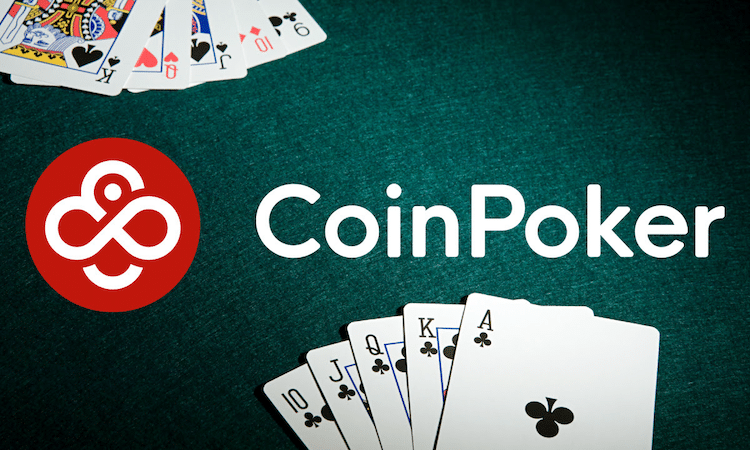Illegal gambling continues to be a persistent problem across the United States, even with significant efforts from lawmakers and law enforcement agencies. Although the legalization and regulation of sports betting have helped bring a portion of the gambling industry into the mainstream, reducing the influence of offshore and black-market operators, other types of gambling remain problematic in several states. Alabama is one such state grappling with illegal gambling, and now, new legislation aims to crack down on it by imposing stricter penalties on offenders.
Tougher Penalties Proposed for Illegal Gambling in Alabama
A new bill, HB41, was recently introduced in Alabama by Representative Matthew Hammett. The bill’s primary objective is to increase the penalties associated with illegal gambling offenses, hoping to act as a stronger deterrent. HB41 proposes significant changes to the state’s current gambling laws by redefining key gambling-related terms and enhancing punishments for those involved in illegal gambling activities.
Currently, individuals convicted of illegal gambling in Alabama face charges classified as a Class A misdemeanor. This level of offense carries a maximum punishment of one year in prison and a fine of up to $6,000. However, under HB41, these offenses would be reclassified as a Class C felony, meaning those found guilty could face prison sentences ranging from one to ten years, in addition to fines that could reach as high as $15,000.
For repeat offenders, the proposed legislation introduces even harsher consequences. A second conviction would escalate the charge to a Class B felony, which could result in imprisonment for two to twenty years and a fine of up to $30,000. These tougher measures are designed to discourage repeat offenses and reduce the prevalence of illegal gambling in the state.
Alabama’s Struggle with Illegal Gambling
The problem of illegal gambling in Alabama is not new. Just last month, law enforcement officials discovered previously seized illegal gambling machines in the course of a criminal investigation. These machines, which had been confiscated during previous raids, were found in venues that had already been shut down. Surprisingly, police uncovered close to 100 additional illegal gambling devices, many of which still had evidence stickers from earlier seizures.
Alabama Attorney General Steve Marshall confirmed that these discoveries were made during the execution of search warrants as part of an ongoing investigation. The incident highlights the persistent challenge that law enforcement faces in combating illegal gambling operations in the state.
Development of HB41 and Lawmakers’ Stance
Representative Hammett developed the proposal for HB41 in collaboration with Covington County District Attorney Walt Merrell. Hammett acknowledged that the current gambling laws in Alabama had proven insufficient in curbing illegal gambling activities, prompting the need for a legislative update. He noted that regardless of lawmakers’ positions on previous gambling bills—whether supporting or opposing the establishment of lotteries or casinos—there was a consensus that illegal gambling was a significant issue that needed to be addressed.
Hammett himself was one of the lawmakers who voted against a bill that sought to establish a lottery and casinos in Alabama. While the proposal passed in the House, it ultimately failed to gain approval in the Senate. This underscores the complex nature of gambling legislation in the state, where different forms of gambling have been the subject of heated debate.
The Broader Context of Gambling Regulation
The push to regulate and control illegal gambling in Alabama comes amid a larger national conversation about the role of gambling in society. In recent years, sports betting has been legalized in numerous states, bringing a formerly underground industry into the regulated market. While this has been seen as a victory against illegal gambling in some areas, other types of gambling, such as unregulated casino-style games and slot machines, remain outside the law’s reach in many places.
Alabama, like many other states, continues to walk a fine line between expanding legal gambling opportunities and enforcing strict measures against illegal gambling activities. The introduction of HB41 is a clear signal that the state is committed to cracking down on unlawful gambling operations. Whether the bill will succeed in its goal of reducing illegal gambling remains to be seen, but the proposed penalties are certainly a step in that direction.
In conclusion, as illegal gambling continues to challenge law enforcement in Alabama, HB41 represents an effort to strengthen the state’s legal framework against such activities. With tougher penalties for offenders, including higher fines and longer prison sentences, the bill seeks to serve as a deterrent for those who engage in illegal gambling. Lawmakers in Alabama are clearly aiming to address the issue, even as debates around legal gambling options like lotteries and casinos continue in the background.

CoinPoker: A Blockchain-Driven Poker Platform for Crypto Enthusiasts
For those who love poker and are intrigued by the world of cryptocurrency, CoinPoker offers a distinctive experience. This platform puts crypto at the forefront, providing a decentralized, anonymous, and transparent environment for its users. While CoinPoker is primarily focused on poker with a small range of sports betting options, it has encountered difficulties in expanding its appeal to a broader global gambling audience. Here’s an in-depth look at what sets CoinPoker apart and whether it’s a top contender for online poker fans.
A Poker Platform Centered Around Cryptocurrency
CoinPoker made its debut in 2017, envisioning a poker platform powered by blockchain technology. Initially, it allowed players to engage in poker games without wagering real money. However, in 2018, CoinPoker took a new direction by introducing real-money betting, allowing users to gamble with their cryptocurrency holdings in poker games. Supported by a strong poker community, players on CoinPoker are rewarded with the platform’s native token, CHP, as they play and engage with the platform.
The platform accommodates a range of cryptocurrencies, including Bitcoin, Ethereum (ETH), USDT, and its CHP token. The Ethereum blockchain serves as the foundation of CoinPoker, ensuring robust security for those who want to gamble using crypto. Fairness is guaranteed by a Random Number Generator (RNG) that eliminates any chance of manipulation, providing a level playing field for all users. Anonymity is another core aspect of the platform—players’ identities are protected, and no personal information is shared, even during transactions.
Notable Poker Ambassadors Backing CoinPoker
CoinPoker has garnered attention from the poker community, in part due to its partnerships with high-profile ambassadors. Austrian footballer-turned-poker pro Mario Mosböck and British poker professional Patrick Leonard are among the notable figures supporting the platform. Mosböck, particularly, has expressed his enthusiasm for working with CoinPoker, highlighting the shared goal of taking the platform to the next level and making it a leading destination for online poker.
I partnered with @CoinPoker_OFF as an official ambassador. Alongside @padspoker our mission is to guide the new leadership group to build the world´s best online poker room.
This huge challenge will only succeed by serving our community and we need your help on that path 🧵 1/2 pic.twitter.com/Fk3baV8Dqq— Mario Mosböck (@mariomosboeck) August 8, 2024
Transparency and Financial Integrity
A key aspect of CoinPoker’s appeal is its commitment to transparency and security for players. Licensed by Curaçao eGaming, the platform complies with stringent regulatory requirements. CoinPoker also employs Proof of Reserves (PoR), a mechanism that ensures the platform’s financial integrity. With this system, players can rest assured that the platform holds enough funds to cover all user deposits. CoinPoker maintains a clear separation between corporate funds and user deposits, with the latest figures showing that the platform holds approximately $16 million in customer deposits and around $16.75 million in total reserves, ensuring 105% coverage of player assets.
Ensuring Fair Play and Responsible Gaming
Fairness is a priority for CoinPoker, and it utilizes a blockchain-based RNG to maintain the integrity of its games. Anti-fraud measures are also in place to prevent cheating, including the use of third-party software or bots. The platform doesn’t only cater to poker enthusiasts—sports bettors will also find competitive odds available on the platform. CoinPoker’s mobile app, available on Android and iOS, allows users to easily access all of the platform’s features on the go.
In line with its emphasis on responsible gaming, CoinPoker offers tools to help players maintain control over their gambling habits. The platform includes self-exclusion options for those who may be struggling with gambling addiction, and it employs a responsible gaming officer to ensure that the platform adheres to best practices in this area.
Seamless and Private Crypto Transactions
One of the most appealing features of CoinPoker is its integration of cryptocurrency for quick and private transactions. Players can deposit and withdraw their funds using their preferred crypto wallets, ensuring fast, anonymous transactions without the need for traditional banking methods. This focus on privacy makes CoinPoker especially attractive to players who prioritize discretion in their online gambling activities.
A Unique Option for Poker Enthusiasts
With its blockchain-based architecture and focus on cryptocurrency, CoinPoker provides a one-of-a-kind gaming environment for poker lovers who seek anonymity and security. While it may not offer the same variety of games as some of its competitors, its dedication to fairness, security, and responsible gambling practices makes it an attractive option for poker fans. For those who love poker and appreciate the convenience and privacy that come with cryptocurrency, CoinPoker is a platform worth exploring.
Related News
- 10 Best Anonymous Betting Sites & Sportsbooks in 2024 – No KYC
- NJ Casino Denies $2M Jackpot to 72-Year-Old Retiree: A Deep Dive into the Incident
- Best Online Casinos for US Players in 2024 – Trusted Online Casino Sites
- Fastest Payout Online Casinos in 2024 – Casinos With Instant Withdrawals for US Players
Lucky Block Casino - Decentralized Gambling Platform

- Bet With Crypto - BTC, ETH, USDT, LBLOCK and More
- Live Dealers - luckyblock.com
- Rated Best New Crypto Casino - No KYC
- Thousands of Slots, Blackjack, Roulette Games



